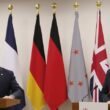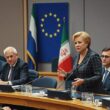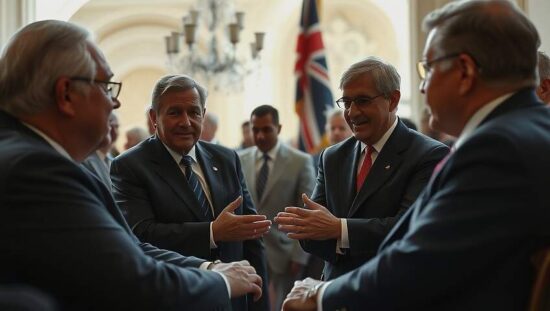The German government, under Chancellor Friedrich Merz of the Christian Democratic Union (CDU), is signaling a renewed and assertive push for a leadership role within the European Union, a move certain to provoke debate and scrutiny amongst member states. During a parliamentary address on Thursday, Merz articulated a policy driven by the principle of “responsibility for Germany” but crucially qualified that this responsibility is incomplete without assuming a proactive and guiding influence across the wider EU sphere.
Merz’s declaration, delivered ahead of a crucial EU summit scheduled for October 23rd and 24th, positions Germany as fundamentally intertwined with the success of Europe, arguing that Berlin’s prosperity is contingent upon the stability and strength of the continent. While recognizing existing consensus on the necessity of bolstering European competitiveness, particularly in the face of global economic headwinds, Merz’s assertion of leadership risks exacerbating existing tensions regarding the distribution of power and influence within the EU.
The summit’s agenda, encompassing critical issues like the ongoing conflict in Ukraine, escalating instability in the Middle East, the future of European defense and security and the perennial challenge of migration, provides a backdrop for this ambitious claim. Critics suggest that such explicit pronouncements of German leadership could be perceived as overstepping, particularly given lingering sensitivities regarding historical contributions to European integration and concerns over a resurgence of German dominance.
Furthermore, the emphasis on economic competitiveness raises questions about the potential for diverging priorities between Berlin and other member states, particularly those in Southern Europe grappling with different economic realities. The declared focus on restoring European competitiveness, while broadly supported, could be interpreted as prioritizing German industrial interests at the expense of social welfare programs or debt relief measures sought by other nations. Observers will be keenly watching how Merz navigates these complex dynamics during the summit and whether his vision of a revitalized and German-led European Union finds receptive ears amongst his counterparts. The summit promises to be a critical test of Germany’s ability to balance its national interests with the collective ambitions of a diverse and often fractious European Union.





